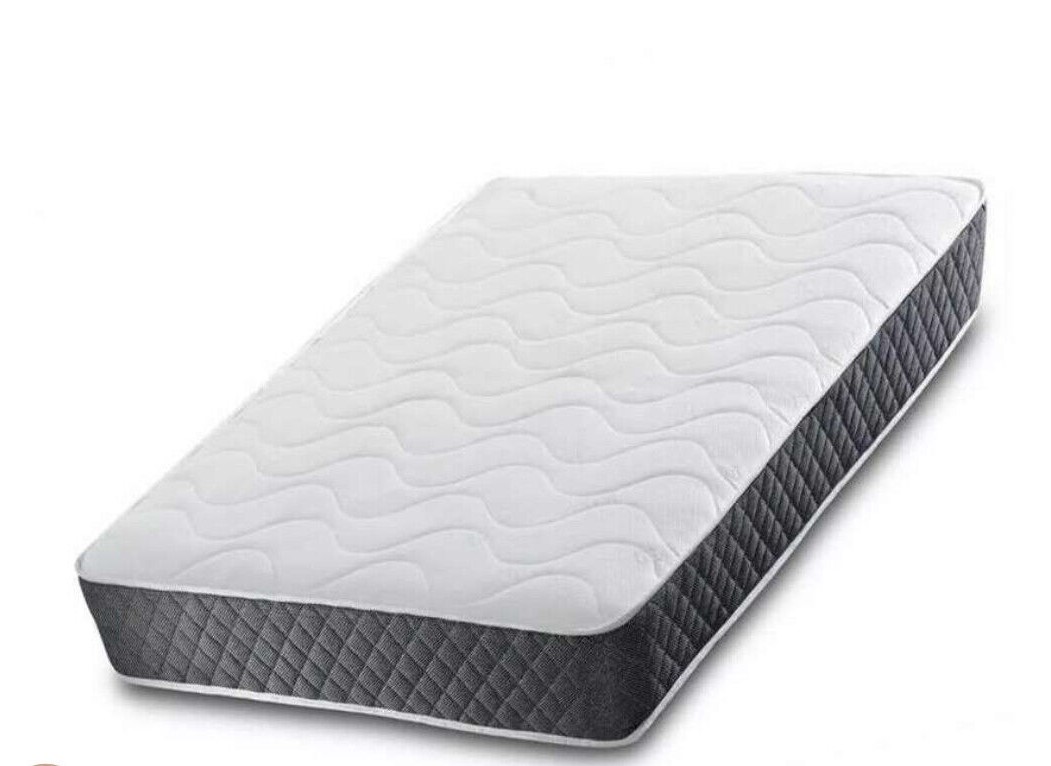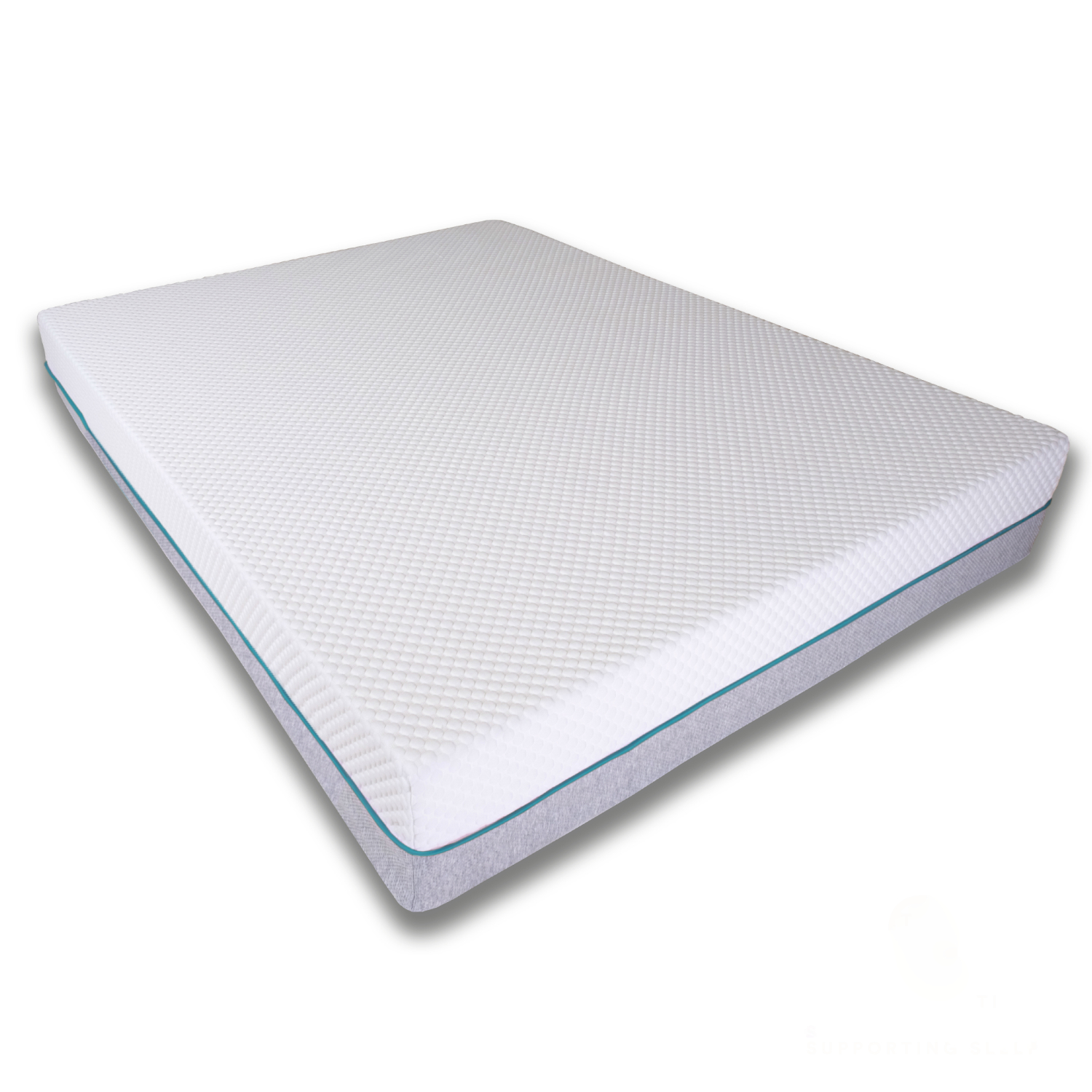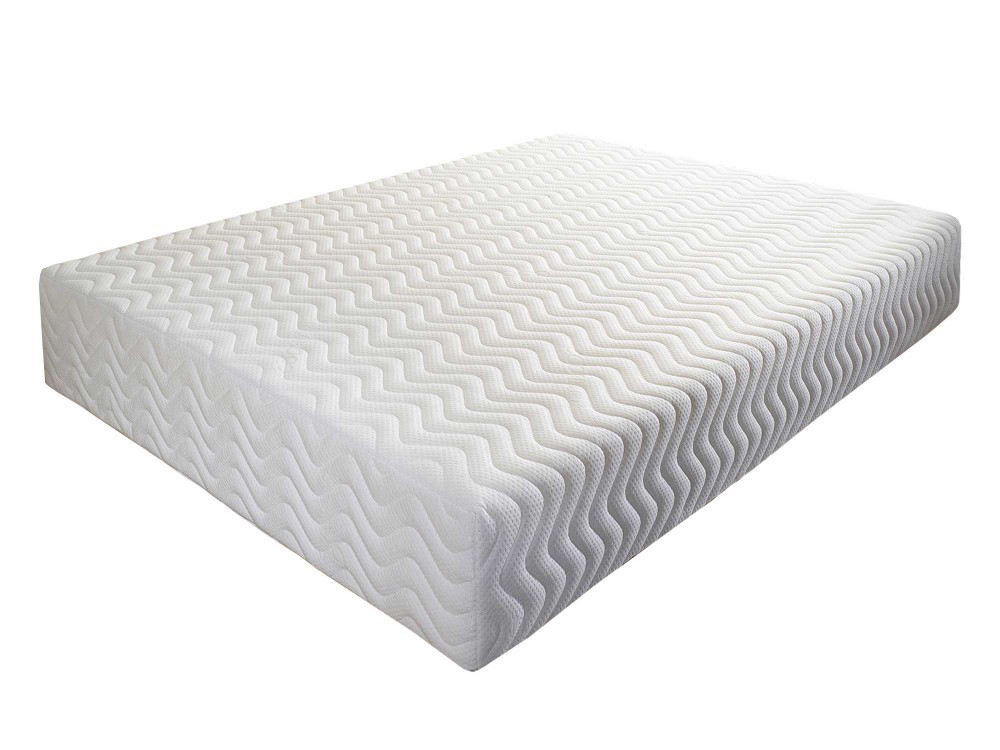- Best Quality Beds & Mattresess At Affordable Price!


Are you having trouble finding a comfortable sleeping position at night? Do you wake up sore or not feeling rested? If so, it might be a good idea to check if your mattress is affecting your sleep quality. A good mattress is crucial for a restful night, influencing not only your comfort but also your overall health and well-being. This article examines the key indicators that suggest it may be time to replace your old mattress. Understanding these signs can help you achieve the quality sleep you deserve and ensure you’re waking up refreshed and ready for the day ahead.
If you’re unsure about when to replace your mattress, it’s likely time to do it sooner rather than later. Signs that your mattress is worn out include trouble sleeping and waking up in pain. Replacing your mattress sooner can help you sleep better. Here are some common signs that indicate it’s time for a new mattress.
If your mattress is sagging or has a permanent dip where you usually sleep, it’s time to get a new one. While you can flip it or add a firmer topper, these often mean the mattress is worn out.
An old mattress can cause discomfort and pain, whether it happens slowly or all at once. As mattresses get worn out, they become less comfortable, leading to pain in the back, hips, and neck. This happens because they lose their shape and don’t provide proper support.
If your mattress has noticeable wear, like yellow stains, ripped fabric, sticking springs, or sagging, it’s a clear sign that it needs to be replaced.
If you’re experiencing more allergy or asthma symptoms, such as watery eyes, a runny nose, sneezing, or difficulty breathing, your mattress may be the cause. Mattresses can accumulate sweat, dead skin, and dust mites over time, especially if they have been are being used for an extended period. If you notice such symptoms at night or upon waking, it might be time for a new mattress.
Another sign your mattress needs replacement is poor sleep quality. Suppose you wake up feeling tired, whether due to back pain or increased allergy symptoms, it may indicate that your mattress is not providing proper support. Restless sleep can result from various factors, such as a low-quality mattress or pillows, or even underlying health issues. Doing daily exercise might help, but if your mattress is the problem, consider investing in a better one.
Mattresses can collect sweat, dirt, and dead skin over time. Humidity can also lead to mould, mildew, and bad smells. While you can deodorise a mattress with baking soda, mattresses that smell bad will probably need to be replaced sooner rather than later.
If your mattress is noisy and you’ve checked the frame for loose screws, the noise may be due to wear and tear from age. This problem often happens with older innerspring mattresses as the springs can wear out, bend, or even break over time.
A bad mattress may cause you to roll off. If you wake up in the middle after moving around in bed, your mattress probably isn’t providing a good night’s sleep.


Buying a new mattress may not feel urgent, but keeping your sleep environment comfortable is crucial for maintaining good sleep quality and preventing discomfort. Replacing your mattress every six to eight years helps improve your health, hygiene, and sleep quality.
How frequently should you replace your mattress? This depends on the type of mattress and the level of care it receives. There are several ways to extend a mattress’s lifespan, and investing in a new mattress provides various advantages that improve sleep quality.
Reduced Aches & Pains: Old mattresses may sag, resulting in discomfort. A new mattress provides enhanced support, alleviating back, hip, and joint pain.
Relief from Allergies and Asthma: Old mattresses accumulate dust, dander, and allergens over time. A new mattress may alleviate allergy and asthma symptoms.
Less Motion Transfer: Worn out mattresses may lead to increased motion transfer when users or their partners move during the night. New mattresses generally have reduced motion transfer.
Less Mattress Noise: Older mattresses can become noisy as they degrade, while a new mattress should operate quietly.
There isn’t a specific lifespan for a mattress; it depends on the materials, quality, age, and care. Cleaning a mattress regularly, rotating or flipping it, and using a good protector can help extend its lifespan. It’s also best to keep pets off the bed to avoid stains. Mattresses used by young children may require extra attention due to the risk of accidents.
Mattress lifespans can vary widely, typically ranging from six to fifteen years, with an average lifespan of eight to ten years. However, high-quality mattresses can last longer. For example, memory foam mattresses can last 10 to 20 years, significantly longer than traditional spring mattresses, because they conform to your body while you sleep.
A mattress’s lifespan depends on several factors. While all mattresses wear out over time, their quality and the care they receive can extend their lifespan. Here are the main factors that affect how long a mattress lasts:
High-quality mattresses tend to preserve optimal performance for a longer duration. For instance, latex mattresses may last up to 15 years, as they are less susceptible to sagging than innerspring models. Meanwhile, hybrid mattresses typically retain their quality for over 10 years, thanks to their design, which provides support that diminishes more uniformly over time.
Flip your mattress every three months for even wear. Clean it twice a year by spot cleaning, vacuuming, or using a vinegar solution or a stain remover on any stains.
A single person generally uses a mattress for a longer time than a couple or family, who put more weight and stress on it. Additionally, heavier individuals often shorten the lifespan of the mattress. Furthermore, if someone sweats excessively at night, their mattress may wear out sooner because sweat can damage the materials over time.
Pets and children both contribute to the rate at which a mattress wears out. Activities like jumping on the bed, increased dirt and dander, and potential nighttime accidents can all contribute to the need for earlier replacement of a mattress.
While many mattresses should be replaced every 10 years, you can take proactive steps to extend your mattress’s lifespan, such as:
Use a Mattress Protector: A high-quality mattress protector shields your mattress from moisture, dust, dander, and spills.
Take Proper Care: Don’t jump on your mattress to keep it in shape. Clean it once or twice a year with baking soda and a vacuum to help it last longer.
Use the Right Foundation: Choosing the correct foundation or bed frame can help prevent sagging and premature wear of your mattress.
Rotate or Flip Regularly: Rotate your mattress every few months to maintain its support and longevity. Some mattresses can be flipped, but most with a top comfort layer are designed not to be flipped but can be rotated.
Recognising the signs that indicate it’s time to replace your mattress is crucial for your overall health and well-being. If you experience persistent discomfort, sleep disturbances, or visible signs of wear and tear on your mattress, it may be time to consider replacing it. A quality mattress is vital for restful sleep, significantly boosting your daily productivity and overall well-being. Don’t underestimate the importance of investing in a mattress that supports your sleep needs; doing so can lead to significant improvements in your physical and mental health. If you’ve noticed any of the indicators mentioned above, it may be the perfect time to consider investing in a new mattress.







| Feet & inches | Common reference | Measurement in Centimetres | |
| Width (cm) | Length (cm) | ||
| 2FT6 | Short Single | 75 | 175 |
| 2FT6 | Small Single | 75 | 190 |
| 3FT | Single | 90 | 190 |
| 4FT | Small Double | 120 | 190 |
| 4FT6 | Double | 135 | 190 |
| 5FT | King | 150 | 200 |
| 6FT | Super King | 180 | 200 |
| Please note: measurements are close approximations only | |||